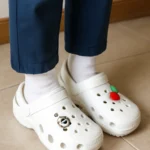Are you preparing for college life in Korea? Learn the essential Korean writing tips that will make your transition smoother and help you thrive in your academic journey!
Speaking Korean for College Life
When embarking on college life in Korea, speaking Korean plays a pivotal role in navigating everyday situations. While college students often focus on writing, it’s important not to overlook how conversational skills can make a huge difference in your university experience.
For example, when you first step into the campus, knowing a few key phrases will instantly help you interact with professors, classmates, and even local vendors. Phrases like “안녕하세요” (Hello) and “감사합니다” (Thank you) are essential for showing respect, which is highly valued in Korean culture. Whether you are ordering food at the cafeteria or asking a professor for advice, speaking even simple Korean phrases can significantly enhance your college life.
Basic Korean Phrases for College Life
-
안녕하세요 (Annyeonghaseyo) – Hello (polite)
-
감사합니다 (Gamsahamnida) – Thank you
-
죄송합니다 (Joesonghamnida) – I’m sorry
-
수고하세요 (Sugohaseyo) – Keep up the good work (often used to show appreciation for someone’s efforts)
-
이해했어요 (Ihaehaesseoyo) – I understand
It’s not just about the words, though. The tone and context matter a lot in Korean. For instance, when addressing elders or professors, always use the formal speech level. This shows both respect and cultural awareness. You’ll find that speaking politely will help you integrate quickly into university life, as Koreans appreciate when foreigners make an effort to speak their language correctly.
If you’re unsure of a word, don’t hesitate to ask for clarification. Most people will be understanding, and they’ll often be impressed by your effort to communicate in their language.
Learn More About Korean Phrases
Korean That Makes College Life Easier
While speaking is essential, writing is the backbone of academic success. As a college student in Korea, you’ll find that Korean writing is frequently used in assignments, notes, and group work. Mastering basic Korean writing skills can make your college experience a lot smoother.
One key aspect of writing in Korea is understanding how to use formal writing structures. This includes knowing how to properly format essays and research papers. Korean universities have a strong focus on written communication, so being able to write effectively will set you up for success.
Essential Writing Skills for Korean College Students
-
Correct Use of Honorifics – Knowing when to use formal or informal language is crucial.
-
Academic Tone – Korean academic writing tends to be very formal. Use polite endings such as -습니다 or -니까.
-
Paragraph Structure – Write clear and concise paragraphs, each with an introduction, body, and conclusion.
-
Citations and References – Familiarize yourself with the citation methods used in Korean academia.
One simple tip is to always organize your writing into logical sections. For example, before starting any assignment, take a few minutes to outline your main ideas. This will not only help you stay on track but also improve the clarity of your writing.
Practical Writing Tips
-
Handwritten Notes In Korea, many professors still prefer handwritten notes. Invest in a notebook dedicated to your lectures, and jot down key points in both Korean and English for easier recall later.
-
Use Word Processors When writing essays or reports, always use Korean word processors like Hancom Office or Microsoft Word with Korean language support. These tools will automatically correct any spelling or grammar errors.
Explore Writing Tools in Korea
Basic Writing for College Students
Writing in Korean for academic purposes can seem challenging, but with the right foundation, it’s entirely manageable. Basic writing skills for college students in Korea include mastering basic sentence structures and understanding the appropriate tone for different types of writing.
One crucial part of writing in Korean is mastering the subject-object-verb sentence structure, which is different from English. For instance, while English sentences often follow a subject-verb-object format (e.g., “I eat an apple”), Korean sentences follow a subject-object-verb structure (e.g., “나는 사과를 먹어요” – I apple eat).
Key Aspects of Basic Korean Writing
-
Sentence Endings Pay close attention to the endings of your sentences, as they indicate formality or politeness.
-
Particles Korean uses particles like -을/를, -이/가, and -은/는 to indicate the subject or object of the sentence. Mastering these will improve the flow of your writing.
-
Verb Conjugations Conjugate your verbs according to the tense and level of politeness. For instance, 먹다 (to eat) becomes 먹어요 (polite), 먹습니다 (formal).
-
Use of Adjectives Korean adjectives are often used to describe the subject before the verb. For example, “그 학생은 똑똑해요” means “That student is smart.”
When writing essays or reports, try to avoid long, overly complex sentences. In Korean, short, clear sentences are valued more, so break down your ideas into digestible parts.
Example of Korean Writing for College
Introduction
한국 대학 생활에서 중요한 부분은 바로 언어와 글쓰기 능력입니다. 이 글에서는 학생들이 대학 생활을 시작할 때 유용한 기본적인 글쓰기 기술을 소개하고자 합니다.
Body
대학에서의 글쓰기는 단순히 과제를 완료하는 것 이상의 의미를 가지고 있습니다. 글을 통해 자신의 생각을 논리적으로 전달하고, 다른 사람들과 효과적으로 소통할 수 있습니다. 중요한 점은 항상 정중한 문체를 사용하는 것입니다.
Explore Korean Writing Techniques
Conclusion
Navigating college life in Korea requires more than just mastering the language; it involves mastering the art of writing and speaking in a culturally appropriate way. By learning the essential Korean phrases for daily communication, understanding the structures of academic writing, and developing the skills to organize your thoughts effectively, you will be well on your way to a successful academic journey.
Whether you are preparing for a presentation or writing your first paper in Korean, the skills you develop will benefit you far beyond college life. In the words of the famous Korean writer Lee Mun Ku, “언어는 사람을 변화시킨다” – Language changes people.
Take the time to refine both your speaking and writing skills to make the most out of your college experience in Korea.






